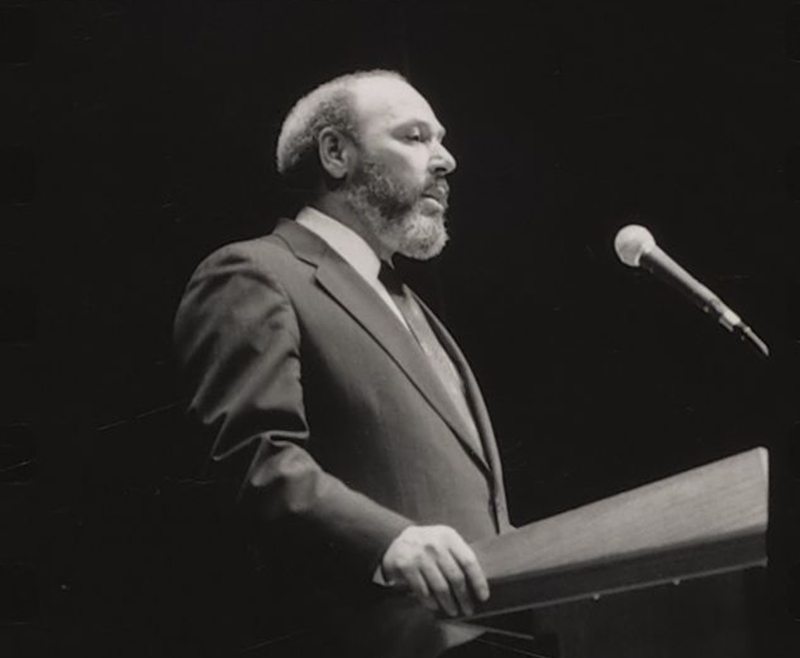On this archival recording, playwright August Wilson celebrates the legacy of Martin Luther King Jr. with a reading at the 92nd Street Y’s Unterberg Poetry Center on January 21, 1991. Wilson reads poems and selections from the plays Fences and Two Trains Running (which had yet to be produced), and participates in an extended audience Q&A. Before reading from Fences, set in Pittsburgh in the fifties, he reads the play’s introduction:
Near the turn of the century, the destitute of Europe sprang on the city with tenacious claws and an honest and solid dream. The city devoured them. They swelled its belly until it burst into a thousand furnaces and sewing machines, a thousand butcher shops and bakers’ ovens, a thousand churches and hospitals and funeral parlors and moneylenders. The city grew. It nourished itself and offered each man a partnership limited only by his talent, his guile and his willingness and capacity for hard work. For the immigrants of Europe, a dream dared and won true.
The descendants of African slaves were offered no such welcome or participation. They came from places called the Carolinas and the Virginias, Georgia, Alabama, Mississippi and Tennessee. They came strong, eager, searching. The city rejected them and they fled and settled along the riverbanks and under bridges in shallow, ramshackle houses made of sticks and tar paper. They collected rags and wood. They sold the use of their muscles and their bodies. They cleaned houses and washed clothes, they shined shoes, and in quiet desperation and vengeful pride, they stole, and lived in pursuit of their own dream. That they could breathe free, finally, and stand to meet life with the force of dignity and whatever eloquence the heart could call upon.
By 1957, the hard-won victories of the European immigrants had solidified the industrial might of America. War had been confronted and won with new energies that used loyalty and patriotism as its fuel. Life was rich, full and flourishing. The Milwaukee Braves won the World Series, and the hot winds of change that would make the sixties a turbulent, racing, dangerous and provocative decade had not yet begun to blow full.
Listen to the full recording from the event below:
from The Paris Review https://ift.tt/38l5ayf

Comments
Post a Comment